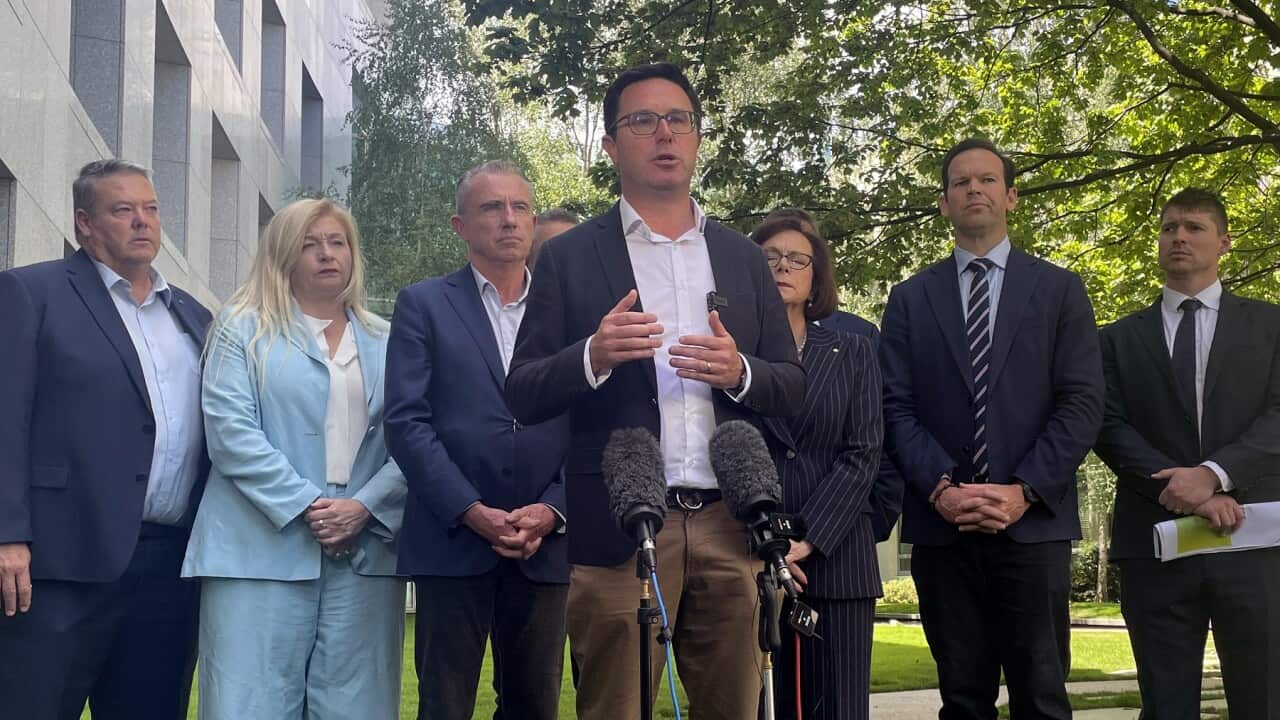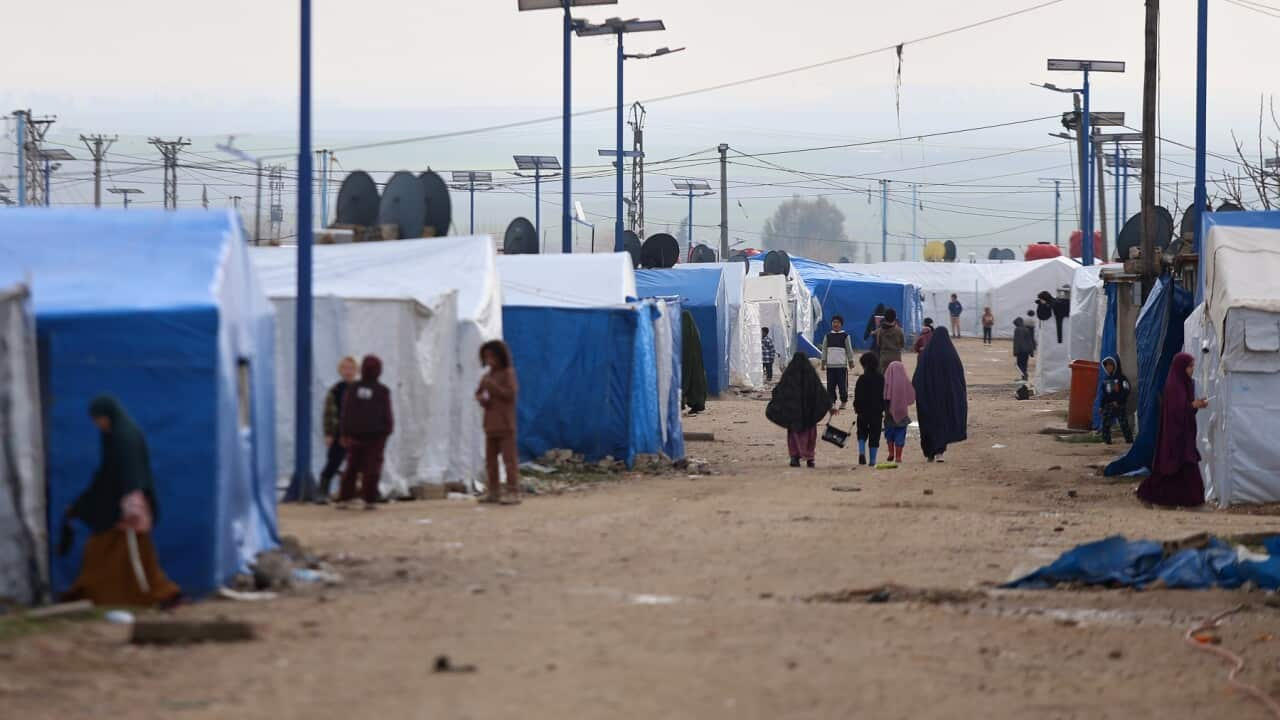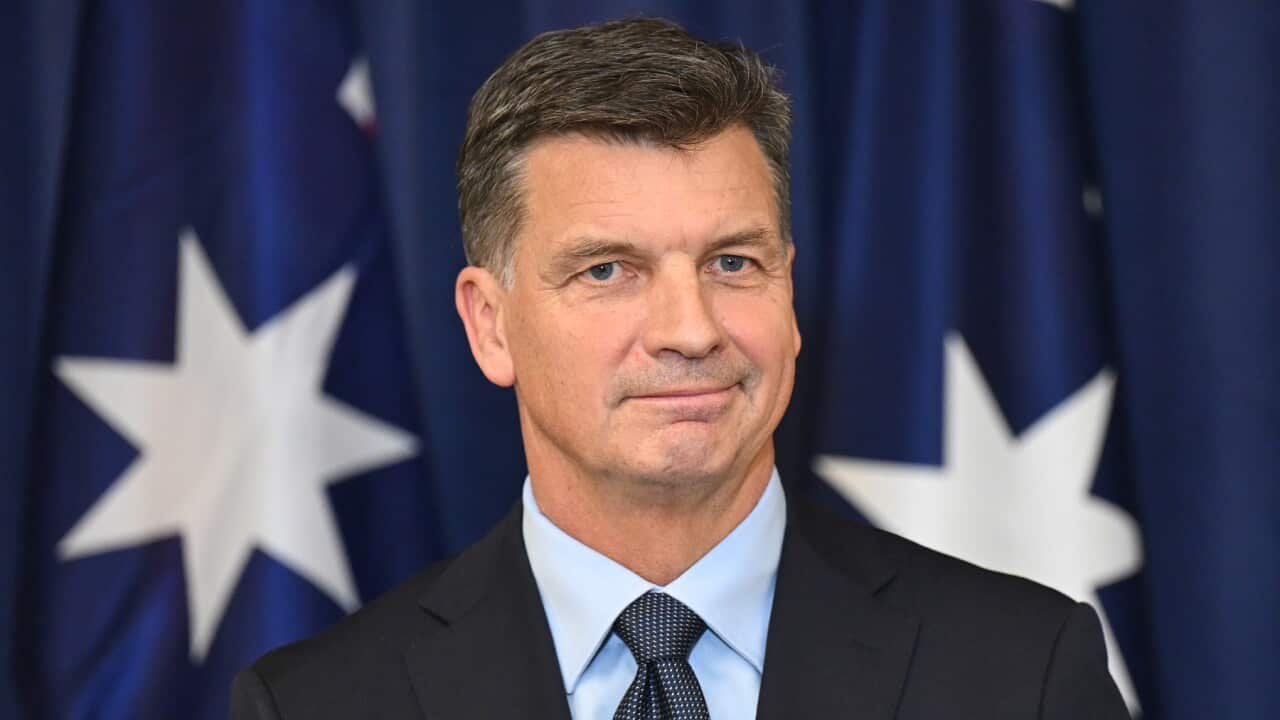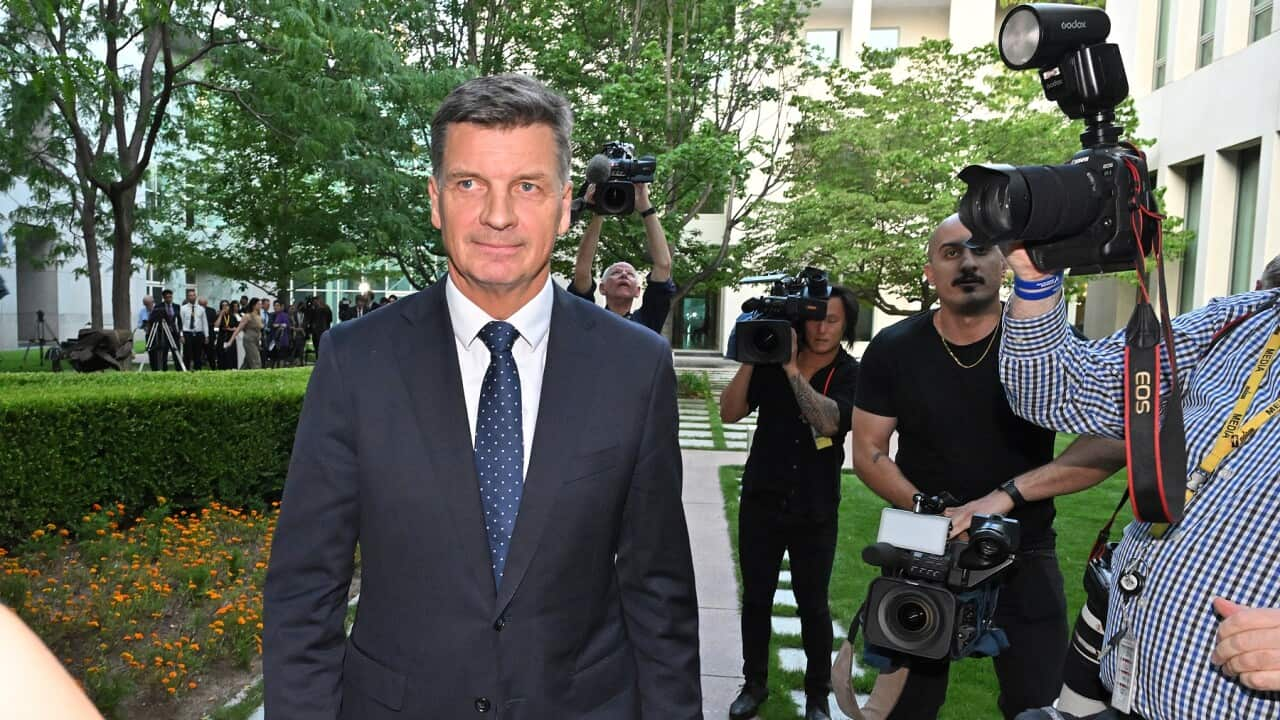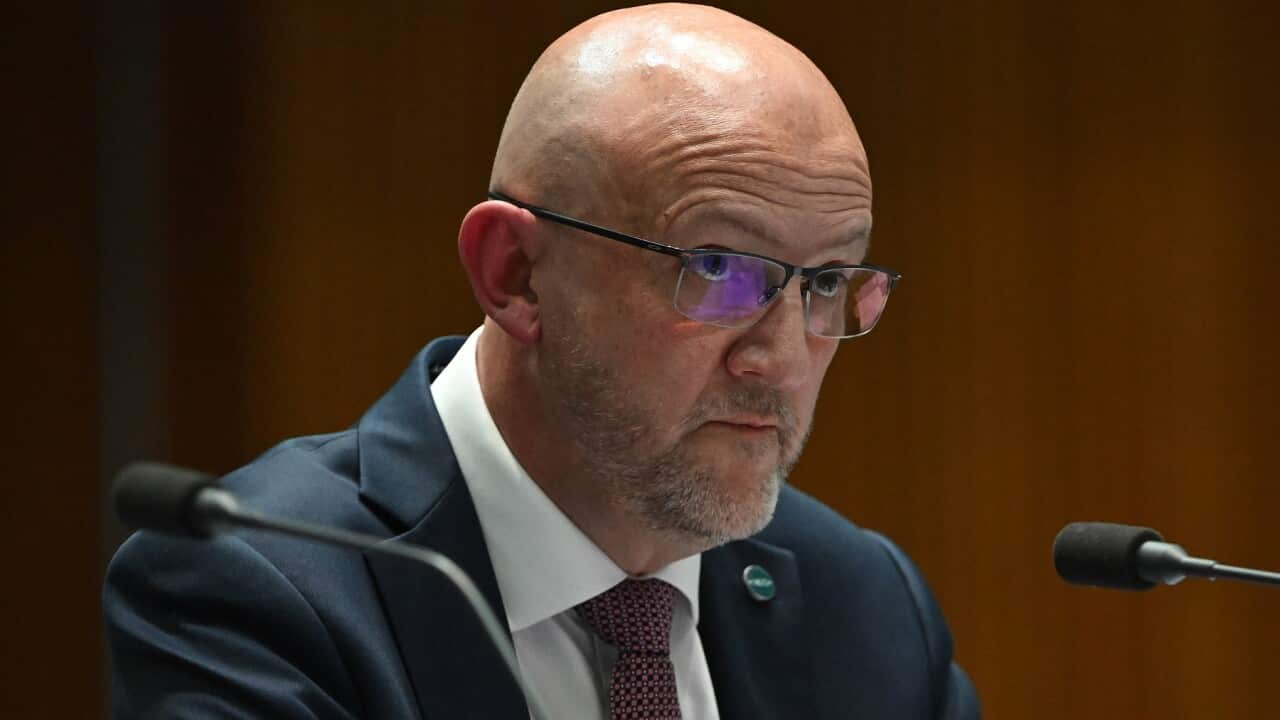Listen to Australian and world news, and follow trending topics with SBS News Podcasts.
TRANSCRIPT
When the Nationals met for their Federal Council this past weekend, they made an important decision.
CHAIR: "I need to put this motion. All those in favour say aye. AYE.... ((applause))"
The vote they took was to drop their support for Australia's net zero emissions by 2050 policy - which Nationals leader David Littleproud has maintained makes little sense.
"Domestically we've lost over seven million hectares of agricultural land and we'll lose another five million hectares of agricultural land on this trajectory that Labor is taking us... We need to understand that if there's a better way then we should explore it."
A day later, at the full party room meeting, the Nationals made it official for their parliamentarians in Canberra.
"I'm proud to say that our party room has got to a unanimous position of scrapping net zero commitments by 2050."
The Nationals leader says that instead, the country's greenhouse gas emissions should be tied to an average of similar countries within the OECD.
"This is about bringing common sense back to climate and energy policy. This is about saying we're going to live up to our commitments internationally. We're going to do that sensibly - but we're going to do what they're doing - at their pace, not streak ahead."
The Nationals' decision has already attracted intense criticism from Labor.
The government is chasing an interim target of 62 to 70 per cent emissions cuts by 2035, and wants to achieve a target of 82 percent of electricity sourced from renewables by 2030 as part of that commitment.
Climate Change Minister Chris Bowen has consequently called the Nationals' criticism of that approach monumentally shortsighted.
"The Nationals party is betraying future generations, but they're also betraying farmers and people in regional communities who can benefit from this massive transformation. They seem to be stuck in the past and despite any encouragement we can give them in the Parliament, they seem to determined to stay there."
The Prime Minister has also criticised the move.
While the Nationals argue Australia's climate targets are driving up power prices and shutting down industry, Anthony Albanese has suggested any delay in reaching net zero would impose additional costs on the economy.
The regional party also argues Australia is doing more than its fair share to reduce carbon pollution - but the PM says Australia could always do more.
He says Australia also has a responsibility to act on climate change because the country - and its neighbours - are especially vulnerable to the impacts.
"We act nationally. We've submitted our NDC (nationally determined contribution) to the UN for 2035. It's an ambitious but achievable target. And it's in the interests of Australia for that to occur, just as it's in our interests to encourage global action."]]
The Greens Sarah Hanson-Young has also weighed in.
"The Australian people simply won't be copping such a ridiculous policy from a party that thinks they should be in government... And our Pacific neighbours are going to be furious that they hear that this type of ridiculous snake oil of a policy is being promoted by the National party - and indeed, the Coalition."
Attention is now turning to whether the Liberals will follow suit when they meet on Friday.
Net-zero policy has become a fractious issue within the federal coalition following its disastrous May election defeat.
There's speculation that the regional party's decision to walk away from formal emissions targets will anger some moderate Liberals who want to remain committed to net zero by 2050.
Mr Littleproud says there are similarities in terms of policy and intent between the positions of the Liberals and the Nationals, based on his conversations with energy spokesman Dan Tehan and the opposition leader Sussan Ley [[lee]].
But Coalition spokeswoman Angie Bell - who is a Liberal MP - has told Sky News that they intend to make up their own minds.
"We're not beholden to the National party. We are the Liberal party. I sit in the Liberal party room in Canberra, and we will go through our processes - which your viewers would understand would be different to the National party processes. And we will come to that in due course when we've done the work and we understand where our policy needs to be."
The Nationals' net zero decision could also have implications for the government's environment bill.
Labor needs to secure a deal with either the Greens or the Coalition to pass these environment reforms in the Senate - and Sarah Hanson Young says the government should not be discussing the bill with the Coalition now.
"How on earth can you work with such a ridiculous out-of-touch party like the Coalition in order to pass your environment laws over the next few weeks, or indeed into the next year?”
